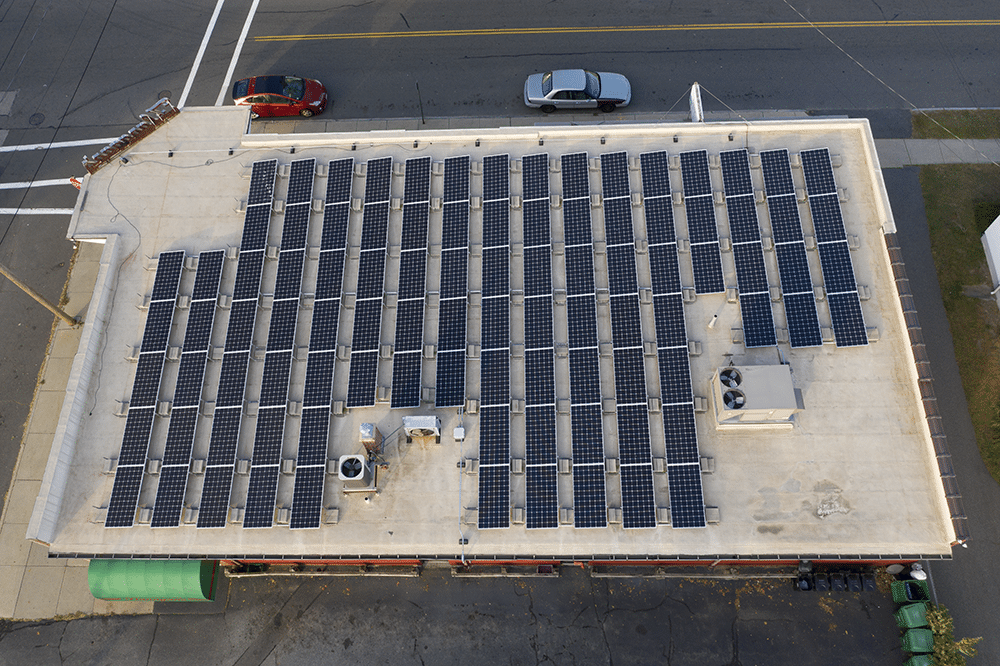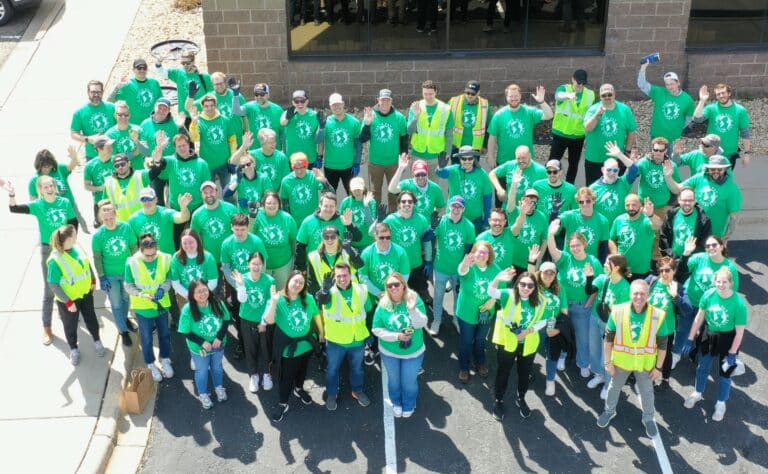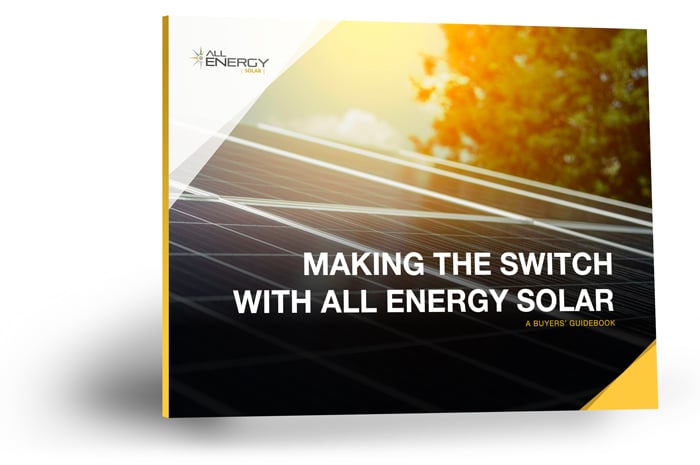Grocery stores are some of the biggest consumers of energy in the retail industry, making them prime candidates for investing in solar power. In addition to the typical heating, cooling and lighting of most buildings, grocery stores also have refrigerators, freezers and other types of cold cases that can take up between one-third and one-half of a supermarket’s footprint – and up to 80 percent of their energy costs. That’s not even taking into account larger supermarkets that might have bakeries, butchers, restaurants and other high energy specialty installations.
According to some statistics, supermarkets in the United States use around 50 kilowatt-hours (kWh) of electricity and 50 cubic feet of natural gas per square foot per year — an average annual energy cost of $4 to $6 per square foot. Depending on the cost of energy in the region, a 2,000-square-foot neighborhood convenience store spends between $8,000 to $12,000 on energy yearly, while a typical 50,000-square-foot grocery store can spend between $250,000 and $300,000 annually. These are costs that never go away, because milk, meat, eggs, frozen pizza, ice cream and many other goodies will always need to be kept cold.

Some grocery chains and supermarkets have already started going down the path towards powering their stores with solar panels, including Aldi, Lidl, Whole Foods, Kroger’s, Ralphs and Food 4 Less. Not nearly enough of these businesses are taking advantage of the big, sparse roofs most grocery stores tend to have that are perfect for solar installations. There are more than 102,000 big box retail stores, supercenters, large grocery stores and malls with more than 4.5 billion cumulative square feet of available rooftop space on which solar panels could be installed.
Loans are available to help grocery stores and supermarkets install solar. These businesses can also apply towards a variety of credits, incentives, rebates and other programs that can make switching to solar more affordable. The federal tax credit for 2021 is 26 percent, while that figure decreases to 22 percent in 2023 and drops to 10 percent in 2024. State and local governments sometimes have incentives as well, in particular when it comes to easing the power loads in more rural areas.
Furthermore, many utilities have programs to encourage solar power projects. When huge consumers of energy like a grocery store installs solar panels, it helps to alleviate strain on the local electric grid. If a solar installation is big enough, not only could it power the store, but the supermarket could “sell” electricity back into the grid and receive credit towards future power needs, while also helping to improve the variety of local energy sources.
Grocery stores and chains that invest in solar panels have increased up-front costs, but will benefit from more predictable electricity costs and reduced business operation expenses. Most solar power systems pay for themselves within five to 10 years, depending on the size of the system and overall power needs. After that, the power a solar system generates is essentially free for the rest of the lifetime of the array.
Learn how solar power could help grocery stores reduce business operating expenses, increase energy independence and improve predictability of power costs. Contact us at AllEnergySolar.com to learn more about taking your grocery store solar.
Want to get updates like this or learn more about All Energy Solar? Take a look at our Solar Power Case Studies, Customer Testimonials, Residential Solar Project Gallery and Commercial Solar Project Gallery, then follow us on Facebook, Twitter and Linkedin.


